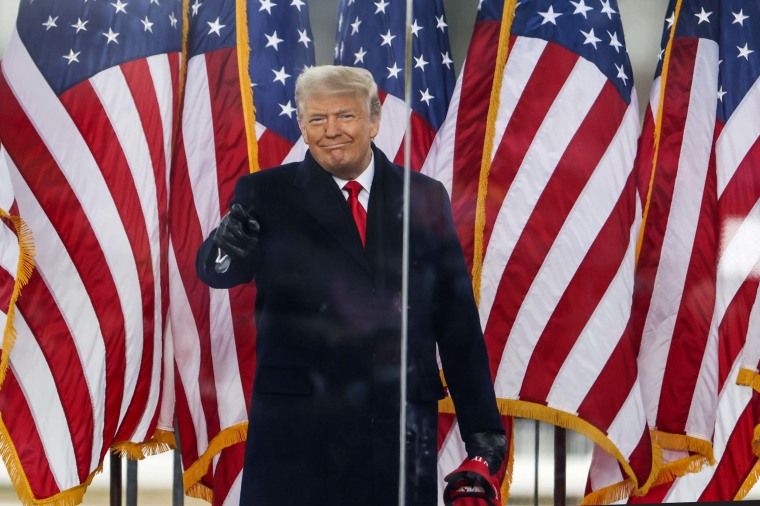It was three months ago yesterday when U.S. District Court Judge David Carter concluded that the “illegality” of Donald Trump’s plot to overturn the election was “obvious.” The next question — at least one of them, that is — is what crimes the former president committed. According to Cassidy Hutchinson, former White House Counsel Pat Cipollone was concerned about officials being “charged with every crime imaginable,” but that’s a little broad.
Obstruction of a congressional proceeding would certainly be near the top of the list, as would conspiring to commit fraud. Witness tampering also appears to be in the mix. After yesterday’s hearing, there’s also renewed interest in the possibility of charges surrounding incitement to riot. The New York Times published a quote that stood out:
“Until this point, we had not seen proof that he knew about the violence,” said Daniel Goldman, a former federal prosecutor who served as the lead counsel during Mr. Trump’s first impeachment and is currently running for Congress in New York. “The testimony made very clear he was not only entirely aware of the threat, but wanted armed people to march to the Capitol. He was even willing to lead them.”
That’s a handy and accurate summary: There’s compelling evidence that Trump summoned enraged followers, assembled an armed mob just south of the White House, filled them with lies, and had every intention of joining them as they descended on the nation’s seat of government.
To be sure, this seems like the sort of thing that might be of interest to federal law enforcement. But as we digest the revelations, I have a related question: What exactly was Trump prepared to do once he arrived at the Capitol?
Obviously, this didn’t happen. Trump told his followers that he would join them, and according to Hutchinson’s sworn testimony, the then-president demanded that he be taken to the Capitol, but it’s worth considering the rest of the plan. Let’s say Trump joined his armed followers after his “Stop the Steal” speech. Then what?
This didn’t fully sink in until re-reading the transcript, but yesterday’s hearing shed some light on this.
Viewers saw Hutchinson during a previously recorded deposition, when she was asked whether other White House officials indicated what the then-president hoped to accomplish after arriving on the Hill. She responded:
“I remember hearing a few different ideas discussed with — between [then-White House Chief of Staff Mark Meadows] and [Republican Rep.] Scott Perry, Mark and Rudy Giuliani. I don’t know which conversations were elevated to the president. I don’t know what he personally wanted to do when he went up to the Capitol that day. You know, I — I know that there were discussions about him having another speech outside of the Capitol before going in. I know that there was a conversation about him going into the House chamber at one point.”
That’s a rather striking detail. There were “conversations” — presumably in advance of Jan. 6 — involving the then-White House chief of staff, the then-president’s campaign lawyer, and a Republican member of Congress allied with the White House. These discussions, in and of themselves, appear legally significant.
Regardless, I'm trying to wrap my head around the scenario. Trump, backed by a radicalized mob, was going to give another speech? And then he and his pals would invite themselves into the House chamber?
I think it's probably safe to say once inside, presidential oratory wasn't the plan. It's not like Trump intended to use his powers of persuasion to convince members of Congress to ignore the election results and give him illegitimate power he hadn’t earned.
It's more likely he had a different kind of confrontation in mind.
Insiders such as Meadows and Perry, of course, could shed light on this, but so far, they’ve refused to do what Hutchinson has done: testify under oath.
* Update: This post has been edited for clarity.

